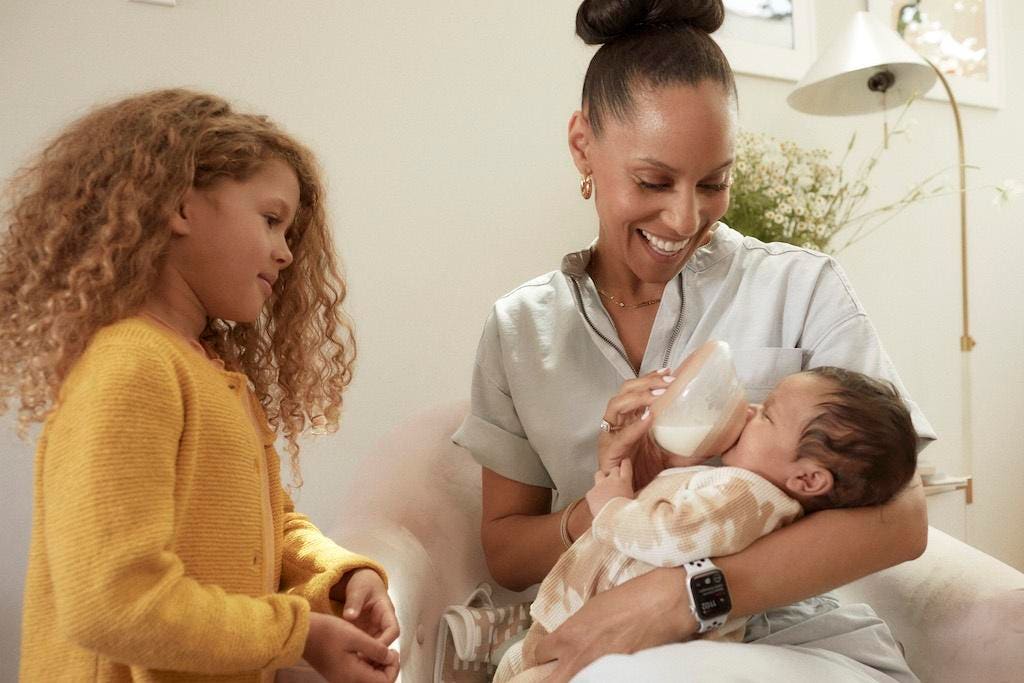What the EEasy Lid is to jars and the Loona is to urinals, Emulait is to breastfeeding.
On its website, the company describes its mission as “[closing] the gap between breast and bottle” in an effort to make breastfeeding accessible to every woman. With the help of an app, available on iOS and Android, people can design their own so-called “biometric bottle” that emulates a person’s actual breast. True to its name, Emulait claims its bottles “truly replicates the mother’s breast in shape, color, elasticity, texture and feel, creating a first of its kind biomimetic bottle.” The startup’a conceit is simple: not everyone can breastfeed naturally, so the Emulait bottles are intended to emulate the mother’s breast as closely as possible.
According to the Office on Women’s Health, some common challenges faced while attempting to breastfeed include low milk supply, breast infection, plugged ducts, and more. From a motor perspective, it’s also plausible women with certain disabilities lack the dexterity or muscle tone necessary to hold their child near their breast during feeding.
Coincidentally, August happens to be National Breastfeeding Month.
The startup’s raison d’être holds deep personal meaning to founder and chief executive Shilo Ben Zeev. In an interview with me via videoconference back in late June, he explained to me his wife endured “many problems” when trying to breastfeed their young daughter. The hardships had costs not only for the baby, but for mom as well; Zeev told me the experience, which lasted for months, took a heavy toll on them emotionally. This experience was the impetus from which Emulait was born—Zeev said he wanted to do something about improving nursing such that no one else would have to go through what his family did.
According to the company’s website, Emulait says it consulted with doctors and lactation experts in order to identify the most important characteristics of breastfeeding. They then studied more than a thousand nipples, both pregnant and postpartum, evenly split between a diverse population. Ben Zeev emphasized the data collected in the app aren’t pictures but rather 3D scans of the breast area. Using the information, Emulait is able to create a variety of bottles; there are 5 different nipple sizes and 5 different skin tone colors, resulting in 25 variations. For those who are uncomfortable over scanning and/or are concerned over privacy implications, the Emulait app is able to suggest most common options, as well as giving users the option to self-select their bottle.
When asked about the reception towards Emulait, Ben Zeev told me “95% of [customers] are very happy” with the product, whereas only 1% return. There are “about 10,000 bottles” in use today. Zeev said the team receives emails from satisfied customers along with links to TikToks and other short-form video in which customers evangelize the product. One of the biggest reason for people’s enthusiasm, he said, is the “talk about diversity” around the variance in nipple sizes and skin tone options.
“You can see yourself [that] this product apparently make people feel very comfortable and very happy,” Ben Zeev said of the positive feedback the team gets from users. “This is something that is really amazing.”
Looking towards the future, Ben Zeev told me he wishes venture capitalists would have more empathy and sensitivity to companies who are tackling women’s health issues, such as breastfeeding. The VCs he reached out to about pitching his idea for Emulait either never responded or came to an initial meeting for what turned out to be a dog-and-pony show. Undeterred, Ben Zeev said he believed in the idea so much that he invested his own money into the project and almost quite literally built Emulait from the ground up.
“This is why I became an entrepreneur,” Ben Zeev said.
Read the full article here





